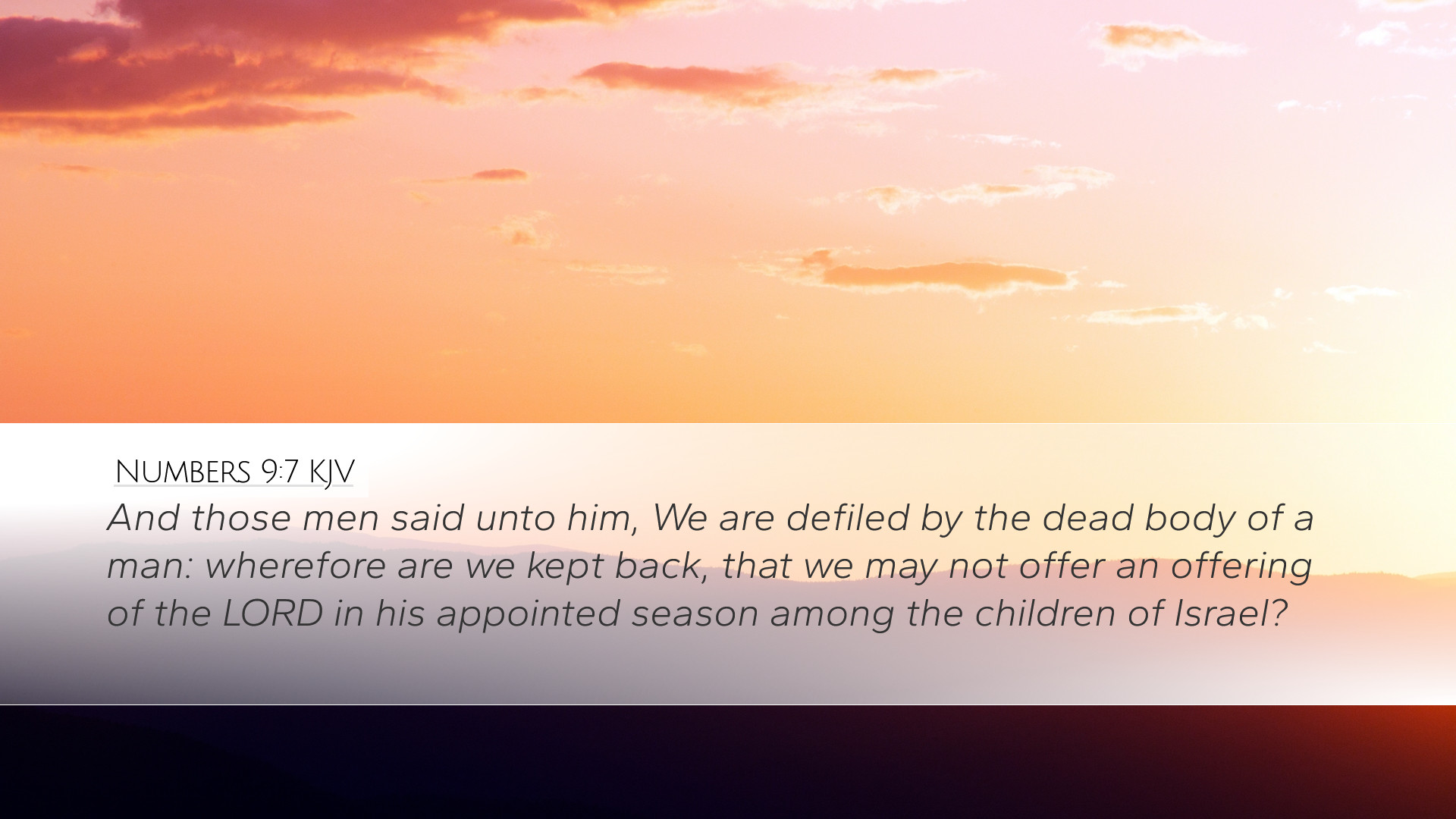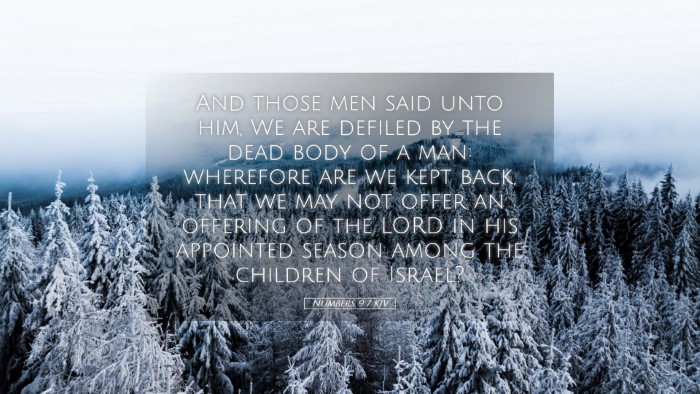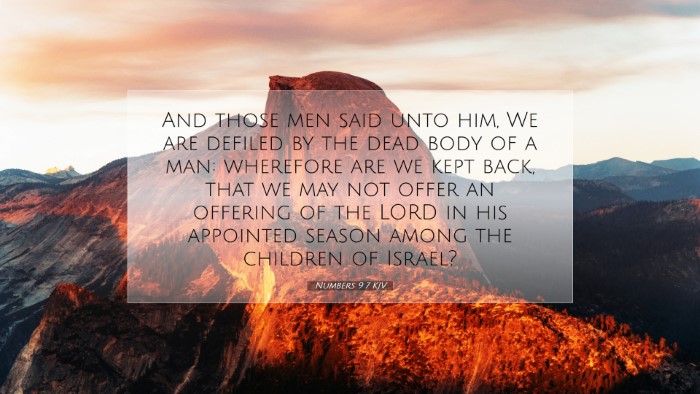Commentary on Numbers 9:7
“And those men said unto him, We are unclean by the dead body of a man: wherefore are we kept back, that we may not offer an offering of the Lord in his appointed season among the children of Israel?”
Contextual Overview
This verse reflects a significant moment during the Israelites' journey through the wilderness. The children of Israel, under God's command, have been given instructions regarding the Passover, which they are required to observe as a reminder of their deliverance from Egypt. Here, a group of men confronts Moses to declare their ceremonial uncleanness due to contact with a dead body, making them ineligible to participate in the sacred observance of the Passover.
Theological Insights
The situation presented in Numbers 9:7 raises critical theological themes regarding ritual cleanliness, communal responsibility, and God's mercy. The men express a valid concern: their state of uncleanness, which is an essential aspect of the Law given to Israel. Matthew Henry notes that the law concerning uncleanness was intended to teach the people about holiness. He underscores that the Jewish tradition placed a great emphasis on cleanliness and purity before partaking in offerings, particularly those that honor God.
Albert Barnes comments that the men's request reflects their desire not to miss the opportunity to worship God, despite their ceremonial impurity. This highlights an essential aspect of communal worship: the longing for inclusion and participation in God’s commandments, even amidst personal obstacles.
Social Implications
The men’s issue encapsulates broader social themes in the community of Israel. Adam Clarke points out that the uncleanness they faced was not a private matter but one that had implications for their entire community. Their exclusion from the Passover meal would not only affect them, but it also influenced the larger community's observance of God's covenant.
- Community and Belonging: The Israelites were a collective, bound by covenant and heritage. Their request reveals their awareness of the importance of inclusion — a powerful reminder of the significance of community in religious observance.
- Cleansing and Restoration: This moment led to the need for guidance on how to deal efficiently with cases of uncleanness, paving the way for God’s provisions for those who may be excluded due to circumstances beyond their control.
God's Response and Mercy
God's response to the men’s query is significant as it reveals His merciful character. Moses, acting as an intermediary, brings their concern to the Lord, showing the importance of communication between the people and God. In subsequent verses, we see that God responded with grace, allowing for a second Passover for those who were unclean or away on a journey.
Matthew Henry emphasizes the aspect of God’s providence: His mercy did not diminish the original requirement but allowed for a compassionate response to genuine need. Albert Barnes also highlights that God's allowance for a second Passover demonstrates His understanding of human limitations and the desire for His people to connect with Him.
Applications for Today
As we reflect on Numbers 9:7 and its surrounding context, several applications emerge for modern faith communities:
- Understanding of Cleanliness: Just as the men needed to confront their uncleanliness, contemporary believers are called to recognize their spiritual impurities and the need to approach God with a humble heart, seeking both cleansing and inclusion.
- The Role of Community: The desire for participation in the Passover by these men speaks to the innate human craving for community and belonging within faith traditions. Modern congregations are encouraged to be inclusive and sensitive to the needs of individuals who may feel marginalized.
- Emphasis on God's Mercy: The outcome of the men’s plea shows that God remains compassionate towards His people. Churches today are called to remember this aspect of God’s character, extending grace and mercy to those who may fear exclusion due to their circumstances.
Conclusion
Numbers 9:7 encapsulates profound lessons on ritual purity, community, and the nature of God’s mercy. By examining this verse alongside insights from notable biblical commentators, modern believers and scholars can draw valuable lessons relevant to their contexts. Embracing the themes of inclusion, the importance of community worship, and the overarching narrative of God's compassionate engagement with humanity continues to hold significance in theological discourse and practical faith life.


